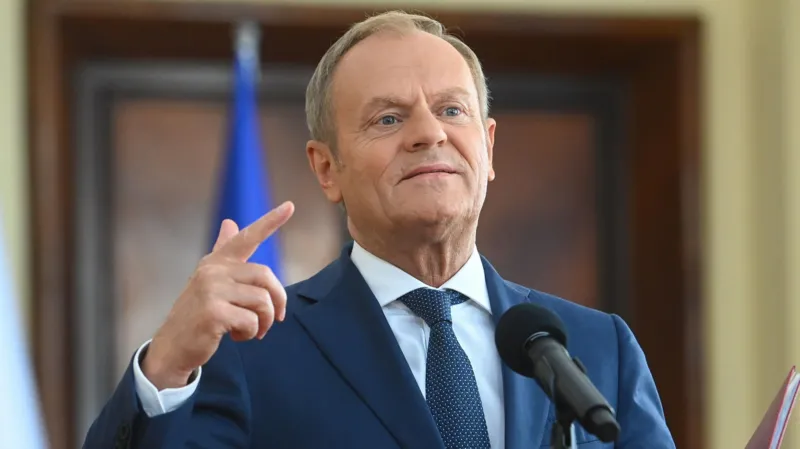Donald Tusk, the prime minister of Poland, is putting out this stark option in front of this weekend’s European elections. Security, or more accurately, the danger of a Russian invasion, is the main theme being emphasized by his team.
Considering that pro-Russian parties are predicted to gain ground elsewhere, most notably in central Europe, Tusk’s Civic Coalition is highlighting the need for the EU to remain strong and united against the threat posed by Moscow.
He is pleading with the Poles to cast their ballots in order to defend themselves.
The statement speaks to genuine worries among the people in the nation, as many Poles are innately suspicious of their massive neighbor for geographical and historical reasons.
For nearly 230 kilometers (142 miles), Northern Poland butts up to Kaliningrad, the heavily fortified Russian outpost. Large rolls of barbed wire fencing define the boundary, which is patrolled by cars equipped with thermal imaging cameras.
The word RUSSIA is prominently displayed in red letters on the other side at the main crossing. Before a busload of passengers may pass, they are all carefully inspected with a sniffer dog.
More than two years ago, President Vladimir Putin initiated a full-scale invasion of Ukraine, further tightening security. Nonetheless, Donald Tusk has promised to do more in the lead-up to the European vote.
A 10-billion-zloty (£1.992 billion) project called “Shield East” aims to fortify Poland’s border with trenches and cutting-edge surveillance.







